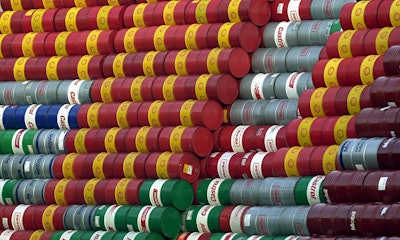
Ever lose something valuable or precious? A wedding ring, a wallet, a credit card, watch? The usual reaction is a mini panic that sets in and prompts an immediate and frantic retracing of steps. Calls to stores visited, checking under the car seats, sometimes picking through the household trash.
Now, imagine if that same thing happened every single day for a year, but you didn’t say anything about it for an entire year, perhaps anticipating that the valuable item would mysteriously reappear sometime after the ball dropped in Times Square.
One might rightly think the unfortunate individual literally lost his or her mind along with that missing prized possession.
So, imagine the reactions of the general public when news surfaced this week in the Wall Street Journal that the autonomous International Energy Agency (IEA) essentially lost more than 800,000 barrels of oil every single day in 2015.
The IEA is an autonomous organisation which works to ensure reliable, affordable and clean energy for its 29 member countries and beyond. The IEA has four main areas of focus: energy security, economic development, environmental awareness and engagement worldwide.
Of course, the whole thing is much more complicated than the ring that ended up in the city dump. The IEA mission is to collect global oil production-demand data and disseminate estimates monthly. While they’re not the only game in town, their numbers represent a key indicator that is closely monitored and can be used to move the market up or down.
Their challenge involves targeting the numbers for stockpiled oversupply since they only receive information from 29 OECD countries – and, surprise, that doesn’t include certain players like China, leading some market experts to suggest that nation may be largely behind the missing 800,000-a-day barrels, i.e., taking it off the market and stockpiling it.
Others question that theory claiming it’s unlikely stockpiles are building so much more quickly than in the OECD countries.
Either way, it becomes a big deal because, according to IEA, roughly 1.9 million more barrels a day of crude is produced each day than the market needs. Of that, the agency estimates that 770, 000 barrels go into storage, 300,000 barrels are in transport on the high seas. That leaves some 830,000 barrels somewhere – or nowhere.
With oil prices at longtime lows in recent times, the market keeps a close eye on oversupply. That missing 800,000+ barrels a day represents more than 40 percent of the supposed oversupply estimated during the entire last three months of 2015.
If the missing overage just represents overstated supply or understated demand, as most analysts seem to think, it could lead to a more rapid bump up in crude prices.
As one oil expert in New York told Chem.Info the models used are not perfect and it’s likely just a data issue, similar to one experienced back in 1998 when a Congress-commissioned investigation chalked the problem up to data errors caused by limited available statistical information.
But, one still wonders why it takes a full year before information surfaces that so much oil has been "missing" for so long. One would like to think that such information would be readily available and widely disseminated shortly after it surfaced, or if it actually was, why no one was paying attention until a year later.
One also wonders why, once again, China gets to play by its own rules when working with the West and why the West continues to let them get away with it.
Even if China is not behind the supposedly missing crude, maybe there should be pressure placed on the nation to be more open with internal data on information of such critical importance to the global markets.
Should the West look to another source to monitor oil heading there? Someone surely must know. Unfortunately, where a lot of oil comes from, that might be very wishful thinking.






















